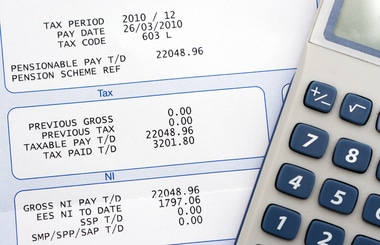When it comes to lease or buy, there are pros and cons to both options. In this post, we will explore the advantages and disadvantages of each choice so that you can make the best decision for your company. Leasing is a great option for businesses that want to conserve cash flow, while buying assets provides tax benefits and long-term stability.
What is a Lease?
A lease is a contract between a lessee and lessor for the use of an asset, such as equipment, vehicles, or real estate. The lessee agrees to make periodic payments to the lessor over the term of the lease. At the end of the lease term, the lessee may have the option to purchase the asset for its residual value or return the asset to the lessor.
What Kinds of Leases Are Most Common?
There are two types of leases: operating leases and financing leases. Operating leases are typically used for equipment, vehicles, or office space. The lease payments are considered an operating expense on the lessee’s income statement. Financing leases are used for long-term assets, such as land, buildings, or machinery. The lease payments are considered a financing expense on the lessee’s income statement.
What is Lease Accounting?
Lease accounting is the process of recording lease payments on a company’s financial statements. The two types of leases are accounted for differently.
Lease Accounting Standards
In 2016, the Financial Accounting Standards Board (FASB) issued new lease accounting standards, which, after being delayed several times, are effective for fiscal years beginning after December 15, 2021. The new standards require lessees to record all leases on their balance sheets as assets and liabilities. These standards are part of ASC 842 (ASU 2016-02).
What is the Difference Between Buying or Leasing an Asset?
The main difference between buying and leasing an asset is who owns the asset at the end of the lease term. When you lease an asset, you are renting it from the lessor. At the end of the lease term, you will return the asset to the lessor unless you exercise an option to purchase it, if available. When you buy an asset, you own it outright and can do with it as you please.
Is Buying or Leasing Better for Tax Purposes?
The answer to this question depends on the type of lease. Operating leases are deductible as payments are made. Financing leases have the same tax treatments as purchasing.
When Should a Company Buy an Asset?
There are several reasons why a company might choose to buy an asset:
- To potentially gain control over the asset: When you lease an asset, you don’t have full control over it because you don’t own it. If you need full control over an asset, such as for customization or long-term strategic planning, then buying it may be the better option.
- To avoid lease accounting: As we mentioned previously, lease accounting can be complex. If you want to avoid this complexity, then you should buy the asset instead of lease it.
When Should a Company Lease an Asset?
There are several reasons why a company might choose to lease an asset:
- To conserve cash flow: When you lease an asset, you don’t have to pay the full purchase price upfront. This can help free up cash flow for other purposes.
- To get the latest and greatest: Technology and other assets can become outdated quickly. When you lease an asset, you can always get the latest and greatest model without having to worry about selling the old one.
- To avoid obsolescence risk: If an asset is likely to become obsolete quickly, it may not make sense to buy it. By leasing the asset, you can return it at the end of the lease term and lease a new one.
- To reduce maintenance costs: When you lease an asset, the lessor may be responsible for maintaining it. Depending on the structure of the lease, this can save you money on repairs and upkeep.
There are pros and cons to both buying and leasing an asset. It’s important to weigh all of your options before making a decision. Lease accounting, buy or lease, and tax benefits are all important factors to consider.
Other Lease vs. Buy Questions
What are lease liabilities in a balance sheet?
Lease liabilities are the amount of money that a company owes for lease payments that have not yet been made. These payments are typically recorded on a company’s balance sheet as a long-term liability. The lease liability account represents the present value of the amount of money that a company owes for lease payments over the remaining life of the lease. This account is important because it helps managers keep track of how much money is owed and when the payments are due.
How do you record leases in accounting?
The lease payments are typically recorded as an expense on the income statement. The lease liability is typically recorded as a long-term liability on the balance sheet.
What is a right of use asset?
Initially you record an asset and a liability and as the lease is paid, you have lease expense for an operating lease and depreciation and interest expense for a financing lease.
Lease Accounting in Maryland
There are upwards of 700 companies headquartered in the state of Maryland, with 6 on the Fortune 500. Billions of dollars flow through Maryland on a daily basis, and a significant portion of that money is dedicated to leases. Since the creation of new standards in recent years, accurate lease accounting is more important than ever. Make sure you have a firm like Katz Abosch, experts in accounting matters for Maryland and beyond.





